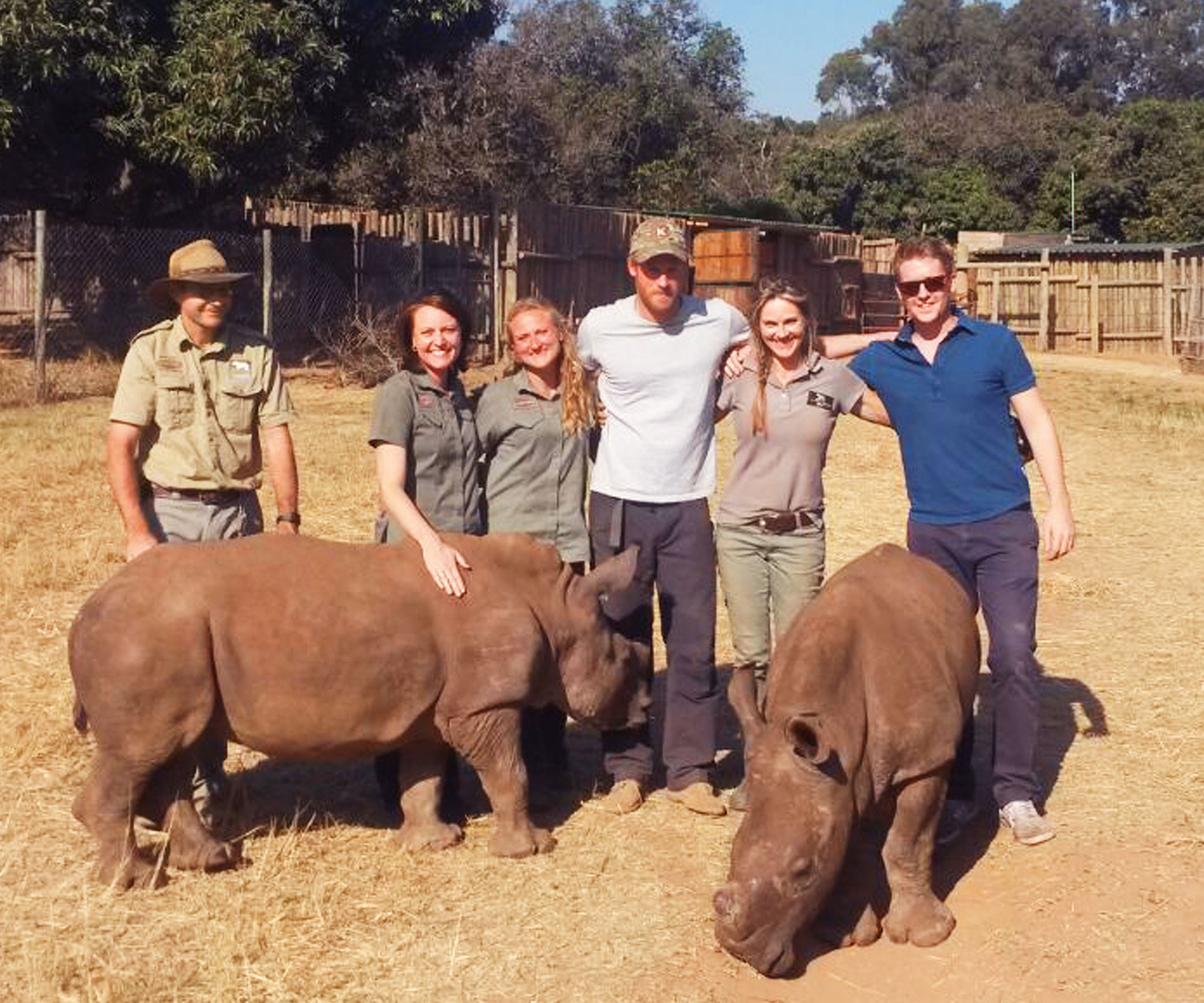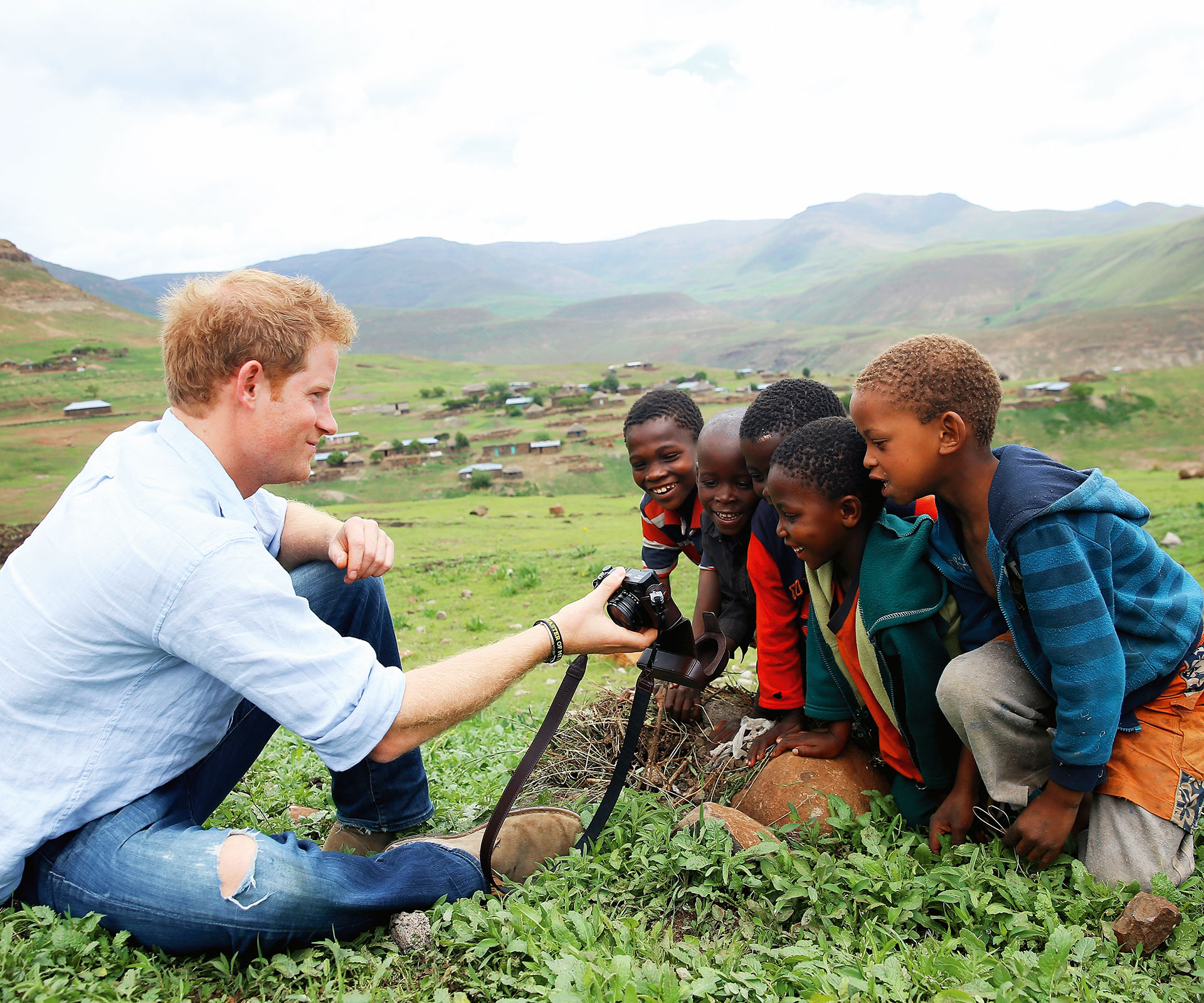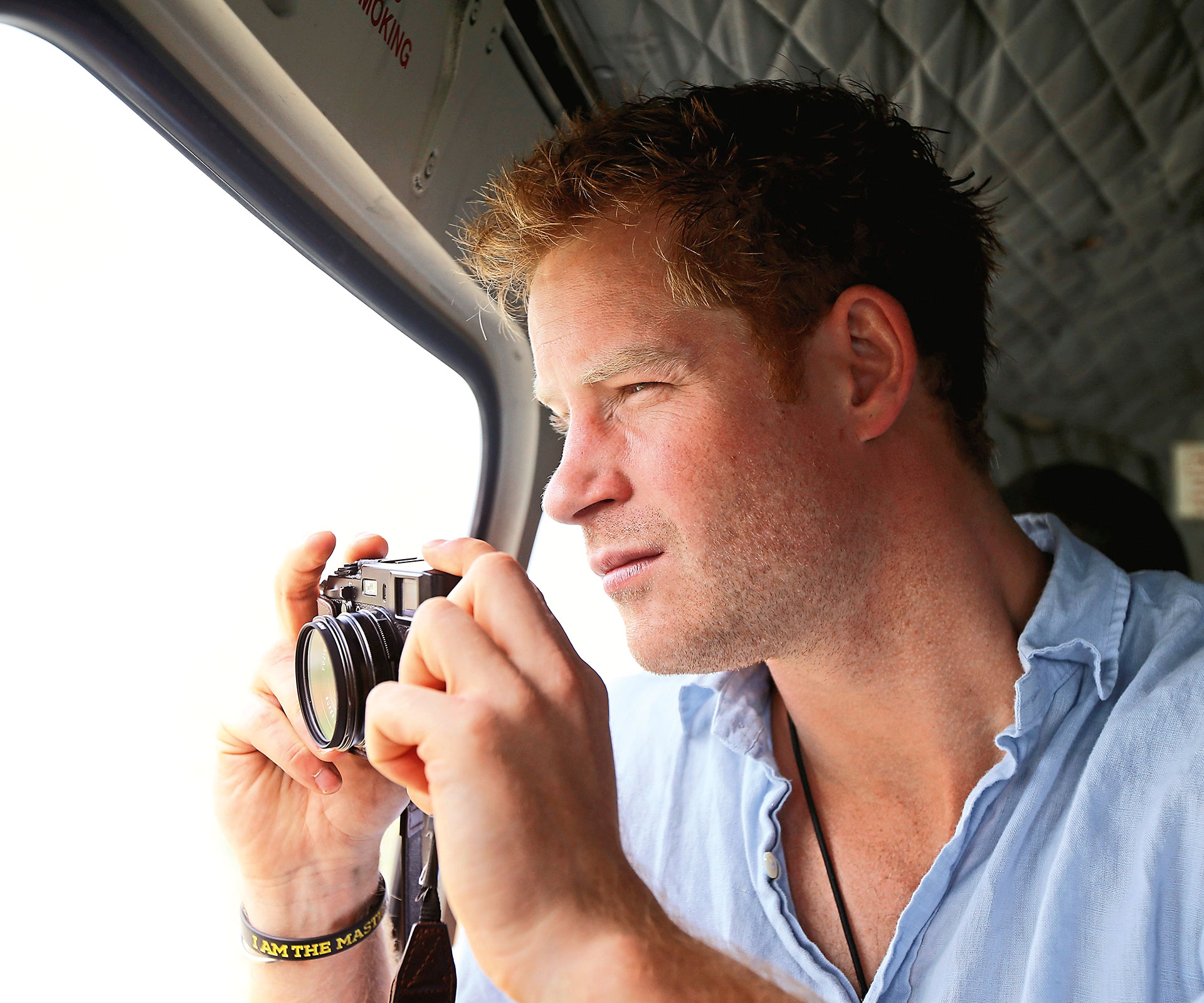He has finally discovered what it is he’d really like to do with his life. But unfortunately for Prince Harry, following his passion for the conservation of wild animals can never be more than a passing interest. His role as a member of the royal family must always come first.
Harry, who will celebrate his 31st birthday next week, has been based in Africa for the last couple of months, seeing first-hand the work that’s being done to protect the continent’s endangered wildlife. When he was planning what he’d do once he left the British Army in June, he specifically asked to observe the various conservation schemes operating in Africa, and has been loving every minute of it.
In a speech to his colleagues there, he said, “Today my heart is here – this is where I want to be. I have to go along with the way my life is, and in many ways I’m very privileged. It’s how things are and I know what I have to do. But I want to spend time out here regularly – it’s become really precious to me and I’m learning a lot.”
Harry and his brother Prince William inherited their love of Africa from their mother, Princess Diana, who spent time in South Africa and Angola doing charity work for Aids causes, and raising awareness of the devastation caused by landmines. William is also a keen supporter of conservation projects on the continent – he’s the patron of a charity called Tusk, set up to help protect African wildlife.

Harry looked in on the Khulula Care for Wild project in South Africa, which looks after orphaned
rhino calves.
Harry has told his companions in Africa that this trip is a fact- finding mission. “I’m taking a lot of new information back home with me for my brother and me to analyse. We’re going to work out a strategy for doing more in Africa and to encourage new conservation initiatives.” To do that, he has been spending time with armed soldiers aiming to keep poachers away from rhinos in South Africa, and has witnessed rangers painlessly removing rhinos’ horns so the creatures won’t be shot for their supposed medicinal properties.
He has recently been with a team tracking lions in a remote part of Namibia. When the team went out at night in search of lions, Harry got fully involved. He was literally hands-on, at
one stage putting his hands on the ribs of a sedated fully-grown male lion to monitor its breathing. Staying incredibly calm, he helped as vets took blood from the lion for DNA identification, replaced a broken GPS collar under its mane and branded it, before it regained consciousness.
Being out in remote locations with people who share his passion for wildlife has helped Harry to relax. He joked about what a “bad uncle” he was for missing the christening of his niece Princess Charlotte, and added, “I really should be there.” He’s also displayed the cheeky sense of humour for which he is known – as the vets branded the lion in Namibia, Harry pulled down his shorts and called out, “Me next” before pretending to reach or the branding iron.
Harry is relishing the freedom being in Africa gives him so much that he’s stubbornly insisted on sleeping in the open, rather than in a tent. His reply to concerned colleagues was, “I’ve come all the way to Africa to be free. I’m taking my bedroll and I’m sleeping by the fire.” Part of an eight-man team, Harry hasn’t asked for any special favours. He has been doing his share of chores,
such as chopping vegetables, preparing meat for the barbecue and washing up. Like everyone else, his days begin at 5.30am and he showers using a bucket of cold water. Simson Uri-Khob, who is the director of the Save The Rhino Trust Namibia, says, “I could see straightaway that he was going to be a great companion and a team player. He looks pale and slim compared to some
of us, but he is strong and you can tell he’s been military trained. He’s impressive.”

Local children showed their admiration for Harry’s artistic talents.
Simson says he told Harry it would be safer if he slept in his tent. “We know that anything can happen unexpectedly – from snakes approaching to insect bites, or an elephant or hyena coming into camp.” On the prince’s insistence on sleeping under the stars, Simson added, “Of course, every time Harry slept out, his bodyguards had to be there too. There was a lot of teasing and joking about him spending his life with them. It was very funny.”
Harry is due to return to the UK later this month but will be back in Africa in December, when he will visit Sentebale, the charity he founded in Lesotho in his mother’s memory, for children affected by Aids.
